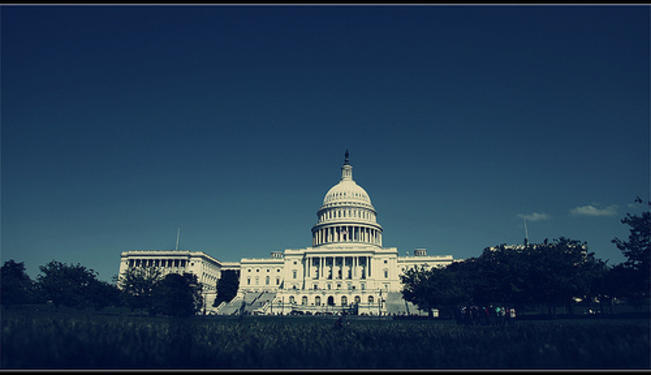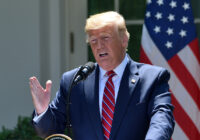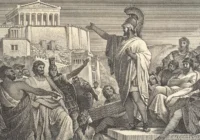Despite the controversies over the past decade, the US has a good track record of maintaining its democratic traditions while still using secret intelligence services to preserve national security.
In 1777, George Washington wrote that the “necessity of procuring good intelligence is apparent.” Indeed, as America fought ardently for its ideals during the Revolutionary War, Washington was said to be an “avid user of intelligence as well as a consummate practitioner.” Washington’s words and actions demonstrate well the contradiction surrounding a democracy’s intelligence service. While the secrecy inherent in a well-functioning intelligence service can correctly be cited as countering the highest of democratic ideals, that same intelligence service could possibly be a crucial partner in maintaining – or in Washington’s case, earning – the democracy’s very existence.
The events of the past decade have heightened the tensions that exist between the United States’ democratic traditions and the character and activities of its secret intelligence. A national furor arose over the 2005 revelation of a domestic wiretapping program run by the National Security Agency. Congress’s 2001 passage and subsequent reauthorizations of the USA Patriot Act stirred similar national concerns. Yet America’s democratic ideals and its secret intelligence service continue to coexist, as they have in various ways since the country’s founding. The US intelligence community has been carefully constructed by elected officials, and despite the debate the result has been significantly strengthened national security with only a marginal compromise of America’s democratic ideals.
A Regrettable Trade-Off
Even experienced intelligence professionals admit, the added security that a secret intelligence service provides comes at the cost of individual liberty. Valuable intelligence requires collection efforts that are wide in scope or targeted and surreptitious. In either case, these actions clash with Americans’ expectations of personal privacy and government transparency. Though citizens of a democracy have a right to demand their government uphold certain values and ideals and behave in a proscribed manner, they cannot easily make demands regarding secret activities they are unaware of. Transparency is needed to allow both citizens and the competing elements of government to check and balance one another. Transparency does not determine accountability – known corrupt officials are sometimes left in power– but it makes it significantly more likely.
Without transparency, a democratic government may transgress the values of its people and not be held accountable. For instance, once the secret wiretapping conducted by the National Security Agency under the Bush administration was exposed, US citizens not only objected on principle but the practice was also later determined to be illegal. Selective secrecy has also been used to mislead Congress and others and nullify checks on executive power. For instance, in the lead up to the second Iraq War many Bush officials informally declassified specific sets of information that appeared more conclusive when taken out of context and thereby exaggerated a threat. Thus, while intelligence certainly contributes to US national security, the secrecy it requires can also act as a force against the most basic democratic traditions.
However, democracies do not have the luxury of focusing all their attention on maximizing internal accountability. Like any state in the anarchic global system democracies must safeguard their national security, and intelligence has provided critical support to American national security numerous times. In the 1960s the Central Intelligence Agency predicted the outbreak and result of the Six-Day War between Israel and its neighbors, which gave policy-makers time to prepare and decision-advantage when leveraging the issue in the subsequent peace negotiations. More recently, intelligence and covert action have been responsible for eliminating many of the most senior al-Qaeda leaders, including Osama bin Laden. Evidence also increasingly suggests that there was a fair level of intelligence warning prior to the terrorist attacks of September 11, 2001. Of course, this last example reminds us that intelligence is only one of many factors (and a tricky one at that) that contribute to policy makers’ decisions and leadership efforts. Nevertheless, detailed information and value-added analysis about subjects such as these clearly contribute to US national security, and thus allow Americans to enjoy their democratic traditions under less significant threat.
Thus, whereas the most fervent subscribers of democratic traditions may demand that no secret intelligence activities pollute their ideals, many others recognize that some intelligence activities are required in order to guarantee the state’s continued existence and safety.
Managing the Tension
The United States has managed the tension between its democratic traditions and secret intelligence activities in three central ways, and the result has been the operation of a secret intelligence service that conducts itself in ways relatively consistent with America’s democratic traditions.
First, rather than subscribe to a notion of monolithically trading all individual liberty for total national security, the United States has worked to enact only precise, targeted trade-offs between the secrecy needed to support national security and its citizens’ own democratic expectations.These trade-offs have changed as the global security landscape has changed, but it is widely acknowledged that Americans are willing to forego some expectations of privacy in order to avoid intelligence failures such as the Pearl Harbor or September 11th attacks, not to mention the wars and American deaths that followed these event. For instance, while Americans seemed unwilling to accept the secret and potentially broad scope of the National Security Agency’s domestic wiretapping, they were more comfortable with the targeted policy changes in the USA Patriot Act, which will also allow for an element of domestic covert intelligence collection.
The uneasy relationship between secret intelligence services and democracy has also been addressed by assigning distinct agencies with the responsibility for intelligence collection. The Federal Bureau of Investigation uses legalistic law-enforcement methods for intelligence collection within the US borders, and the Central Intelligence Agency and other foreign intelligence agencies are free to use less savory and more secret collection methods overseas. This arrangement has ensured that the bulk of US secret intelligence activities and their accompanying risk to democratic ideals take place outside the United States’ domestic democratic framework. Domestic intelligence collection is done in a far more transparent manner, despite what popular television series may indicate.
Finally, the United States has ameliorated tension between its secret intelligence services and its democratic ideals by ensuringintelligence activities are under the strict direction of a distinct, elected policy-making apparatus. As a result, intelligence activities are fashioned strictly around collection requirements set by the President and his or her staff. Moreover, the President must personally pre-approve each covert activity that occurs, ensuring he or she is both aware and can be held responsible. If flagrantly irresponsible activities are approved they may also become public, as seen in the 1972 Watergate scandal, and the President can be held accountable in various democratically-rooted ways. Also, such public ordeals serve as reminders to future policy-makers when they take charge of the intelligence community.
A Good Track Record
The secrecy that is required for intelligence services to effectively support national security efforts contributes to the possibility that transgressions against democratic traditions may occur, but it does not predetermine them. Secret intelligence activities can be conducted in a reasonable manner consistent with democratic ideals, and they have been for nearly fifty years. When transgressions have occurred, as discussed in the examples above, the US democratic system has successfully dealt with them and moved forward. In other cases, intelligence has led to valuable outcomes in which the United States and its citizens are safer and better prepared to engage with potential threats. The result has been a country stronger and more prepared against external threats, and thus a haven in which democratic traditions can continue to be practiced.
The views expressed in this article are the author's own and do not necessarily reflect Fair Observer’s editorial policy.
Support Fair Observer
We rely on your support for our independence, diversity and quality.
For more than 10 years, Fair Observer has been free, fair and independent. No billionaire owns us, no advertisers control us. We are a reader-supported nonprofit. Unlike many other publications, we keep our content free for readers regardless of where they live or whether they can afford to pay. We have no paywalls and no ads.
In the post-truth era of fake news, echo chambers and filter bubbles, we publish a plurality of perspectives from around the world. Anyone can publish with us, but everyone goes through a rigorous editorial process. So, you get fact-checked, well-reasoned content instead of noise.
We publish 2,500+ voices from 90+ countries. We also conduct education and training programs
on subjects ranging from digital media and journalism to writing and critical thinking. This
doesn’t come cheap. Servers, editors, trainers and web developers cost
money.
Please consider supporting us on a regular basis as a recurring donor or a
sustaining member.
Will you support FO’s journalism?
We rely on your support for our independence, diversity and quality.







Comment